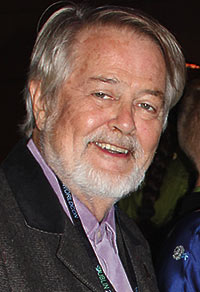The Year in Review 2022 by Russell Letson

While groping around for an organizing idea for this annual attempt to impose a shape on my shamble through the field, I kept coming back to maps and territories and borders. What follows is not a map of the field but a hand-drawn sketch of the back yard of my own long-cultivated personal tastes. And now that I’ve introduced the metaphor of the map: my wander through the titles had me considering intergenre borders, since for the last couple of years I’ve found myself reading a bit more fantasy than usual and reflecting on how much those categories intersect.
Charles Stross has been crossing genre boundaries of all kinds for most of his career – I’ve called the Laundry series ‘‘horror/secret-agent/comedy entertainments’’ – and I would add to that his tendency to also mix and match fantasy and SF sensibilities by treating the supernatural order as rationally understandable and manipulable (a fictional strategy with roots in Edwardian ghost stories) and even bureaucratizable. The 2022 publishing calendar gave us two Laundry-setting books with different atmospheres. I found the Stross of Quantum of Nightmares to be angrier and thus more disturbing than the (to be fair) ingenious cuteness-to-horror inversions and pop-culture satire of Escape from Yokai Land. Quantum’s horrors are literalized projections of the monstrous, predatory side of modern capitalist-authoritarian society, where being eaten alive by the rich and powerful (or their extradimensional masters) is more than a figure of speech.
Maybe I’m projecting as well, but in the most robustly entertaining material I keep hearing echoes of the world outside the stories, even when the fantasy milieu is built on familiar tropes. Adrian Tchaikovsky’s The City of Last Chances blends a classic world-where-magic-works with the grind of life-under-occupation dramas and a big dash of Dickensian grit and social consciousness. And Tchaikovsky knows exactly what he’s up to – the perhaps-mischievous descriptive tag for this book on his website is ‘‘Les Miserables meets Casablanca with magic!’’
Then there is my candidate for the year’s most remarkable book: John M. Ford’s magnificent, incomplete Aspects, which I find too idiosyncratic to paste a label on – though maybe I’ll settle for ‘‘a Ruritanian adventure of manners and magic,’’ inadequate as that feels. The world and the wordcraft merge seamlessly, and the result is, to my eye at least, beyond genre. And no other writer I can recall offers a sonnet sequence as a strctural guide.
 My original Locus beat was (for reasons only Charles Brown understood) hard science fiction, and I did find some sure-enough, no-questions SF this year. There were several variations on space opera – which, to be fair, is as much part of fantastika as any epic of magicians and quests. Far futures and near-magical technologies certainly help to blur the boundaries, and Adrian Tchaikovsky’s Eyes of the Void and Linda Nagata’s Needle serve up both. Na gata pushes hard against the SF/F divide, since her characters are fully posthuman and engaged with entities that are truly godlike, capable of creating and controlling worlds. Tchaikovsky’s humans are closer to us and his monsters are thoroughly (and often messily) material, though the underside of his Final Architecture universe has a distinct Lovecraftian vibe (not unlike Stross’s Laundryverse).
My original Locus beat was (for reasons only Charles Brown understood) hard science fiction, and I did find some sure-enough, no-questions SF this year. There were several variations on space opera – which, to be fair, is as much part of fantastika as any epic of magicians and quests. Far futures and near-magical technologies certainly help to blur the boundaries, and Adrian Tchaikovsky’s Eyes of the Void and Linda Nagata’s Needle serve up both. Na gata pushes hard against the SF/F divide, since her characters are fully posthuman and engaged with entities that are truly godlike, capable of creating and controlling worlds. Tchaikovsky’s humans are closer to us and his monsters are thoroughly (and often messily) material, though the underside of his Final Architecture universe has a distinct Lovecraftian vibe (not unlike Stross’s Laundryverse).
The universe of James S.A. Corey’s Expanse includes an extradimensional threat but is otherwise a very material, very human milieu, and the collected short-form entries in Memory’s Legion tie up and stitch together the loose ends of the nine novels of the long-running series. The dangers and complexities of Walter Jon Williams’ interstellar empire in Imperium Restored are also thoroughly material, since human (or nonhuman) nature is capable of generating plenty of problems without intervention from an Other Side. There’s no need for metaphor in outlining the troubles that arise from ambition, greed, pride, and incompetence.
Stephen Baxter threw a couple of interesting curve balls in the form of close-up disaster scenarios that echo events that fill our news reports, embedded in immensely larger science-fictional contexts. In Galaxias, the fallout from a very-hard-SF world-threatening event meets an encounter with enigmatic cosmic intelligences. The Thousand Earths does something similar with converging narratives that encompass the social-economic-political effects of the slow-motion physical crumbling of a world and the running-down of the universe.
For a long time now, my short-fiction reading has not kept up with the calendar but consisted of annuals, theme anthologies, and especially retrospective best-of-author collections. John Kessel’s The Dark Ride and Jack McDevitt’s Return to Glory cover four-decade stretches of the careers of these two productive, wide-ranging writers and invite tracing the through-lines of their work.
Severely selected recommendations:
Aspects, John M. Ford
The Dark Ride: The Best Short Fiction of John Kessel
Quantum of Nightmares, Charles Stross
Eyes of the Void: The Final Architecture: Book 2, Adrian Tchaikovsky
The City of Last Chances, Adrian Tchaikovsky,
Imperium Restored, Walter Jon Williams
Russell Letson, Contributing Editor, is a not-quite-retired freelance writer living in St. Cloud MN. He has been loitering around the SF world since childhood and been writing about it since his long-ago grad school days. In between, he published a good bit of business-technology and music journalism. He is still working on a book about Hawaiian slack key guitar.
This review and more like it in the February 2023 issue of Locus.
 While you are here, please take a moment to support Locus with a one-time or recurring donation. We rely on reader donations to keep the magazine and site going, and would like to keep the site paywall free, but WE NEED YOUR FINANCIAL SUPPORT to continue quality coverage of the science fiction and fantasy field.
While you are here, please take a moment to support Locus with a one-time or recurring donation. We rely on reader donations to keep the magazine and site going, and would like to keep the site paywall free, but WE NEED YOUR FINANCIAL SUPPORT to continue quality coverage of the science fiction and fantasy field.
©Locus Magazine. Copyrighted material may not be republished without permission of LSFF.







